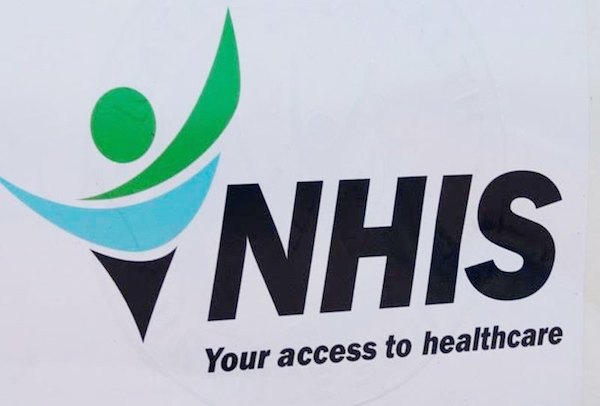Many Problems Plaguing The NHIS


When the National Health Insurance Scheme [NHIS] was set up under Act 35 of 1999 by the Federal Government, the aim of its establishment was to improve the health of all Nigerians and see that affordable health care was available to all irrespective of class, status, gender or social standings.
It fully came into operation in 2005 during the administration of President Olusegun Obasanjo with a mandate to enlist at least 70% of Nigerians by the end of 2010. This goal was later shifted by the Dr. Goodluck Ebele Jonathan administration to cover at least 30% of Nigerians by the end of 2015.
When the NHIS became a reality, staff of government ministries, departments and agencies and well established private corporate organisations keyed into the scheme and till date, they have been enjoying the services provided by the scheme through the many Health Management Organisations [HMOs] scattered across the country.
Essentially, the scheme is being operated by public tertiary [teaching hospitals], secondary [general hospitals] and primary health care facilities and licensed private hospitals in the country with patients paying just 10% of the amount of drugs prescribed and in some instances drugs are dispensed without patients paying, depending on the HMO and the type of health insurance being operated by the patients.
“Health is wealth”, so says a wise saying but the case is different when it comes to the issue of health care delivery in Nigeria because accusations have trailed the scheme in recent times.
Complaints have ranged from restricting drug prescription to drugs that are not covered under the scheme and keeping the very essential drugs for those who can afford them.
In so doing, only the usual drugs are prescribed to patients. Drugs like analgesics, antibiotics and anti-malarial are common in this list.
The normal tests to ascertain blood sugar levels, full blood count, the amount of red and white blood cells, widal tests for typhoid fever detection and a host of other smaller medical tests are all covered.
In some instances, there have been complaints that these drugs are arbitrarily prescribed to patients and no fixed date of appointment given for patients to check back for consultations. Some of the treatments covered under the health insurance scheme do not cover major surgeries, some expensive medical tests, and in such cases the patients or their relatives are compelled to pay the differential bill.
Ordinarily, one would have thought that patients or clients as some would want to call them should be placed on the exclusive lists, because they have paid well in advance to forestall any health challenges but a visit to hospitals within and without the state capital of Osun reveals the direct opposite.
In an interview with an NHIS officer in a popular private hospital in Osogbo, some health care facilities in Osogbo reserve more treatments rights for their paying clients at the detriment of their NHIS enrollees with the argument that they are not making any gains from the scheme, while also running their business at a loss.
“What most NHIS enrollees do not know is that drugs being prescribed have both generic and trade names. An example of this is ANPHETAMINES which is the generic name for all analgesics, while their trade names vary from one pharmaceutical company to the other.
“To some, it is known as paracetamol, M and B paracetamol, Emzor paracetamol, phensic, pengo, daga and so on. For antibiotics, it is penicillin, ampicillin, ampiclox and so on”.
Investigations conducted by this medium reveals that some drugs were more potent than the other and so, medical directors of hospitals in order not to cause confusion for their clients remove the packing and labels from such drugs and dispense it so as not to arouse the suspicions of their patients/clients.
This means that due to continual scientific and medical research on the development of more potent drugs, the federal and state governments who pay the capitation to these hospitals through the HMOs have not for more than a decade reviewed upwardly the capitation being paid the hospitals and it had remained at the same amount for more than a decade.
Within these periods, reasonably, it is common knowledge that the Nigerian economy has experienced inflation and hyper-inflation and the only thing that had not been inflated in recent years have been salaries and wages of workers in both the public and private sectors and now added to the list the NHIS capitation from the agency to the hospitals.
In her own submission, Mrs. Dorothy Nnamani, the Chief Executive Officer of Novo Health Africa Limited, stated that the health insurance covers childhood immunisation, paediatrics treatment, antenatal and delivery services and gynaecological and obstetrics care.
She stated that under the scheme, contributions were earning-based which meant that employers pay 10% while employees pay 5%, but in some instances, the employee may pay the whole amount.
Another scenario is that staffers of these organisations have refused to remit their own part of the counterpart payment to the NHIS.
Nnamani also revealed that the scheme was also optional and people can just decide not to buy into it.
“A major challenge confronting the scheme is that some stakeholders especially pharmacists are not happy with the capitation method of payment.
“Capitation is payment which a client makes on a regular basis to the provider which may be a clinic or a hospital but it is supposed to be renewed on a yearly basis.
“They accuse the medical doctors with the co-operation of the NHIS of hijacking the scheme, but the HMOs do not pay the retainer hospitals as and and when due. Also some of the retainer hospitals do not give the patients the best services because they are being owned by the HMOs or do not have capacity to provide the promised services”, she noted.
Nnamani also added that problems such as under-payment of medical doctors and incessant industrial actions in government-owned health facilities, the recent scandal which involved the Executive Secretary of the NHIS, lack of government spending, poor accessibility, an uninformed public and delay in the deployment of digital technology in tackling health issues and challenges are part of the issues confronting the scheme.
Many enrollees also complain that the essential course of treatments that at times come in at unexpected periods are not covered under the scheme and as such, they have to pay the medical bills from their pockets. Medical care under these categories includes, surgeries, specialists’ surgical procedures and medical examinations.
Health insurance officers in some of the hospitals also revealed that why the situation is so is due to the insurance plan that each enrollee applied for.










